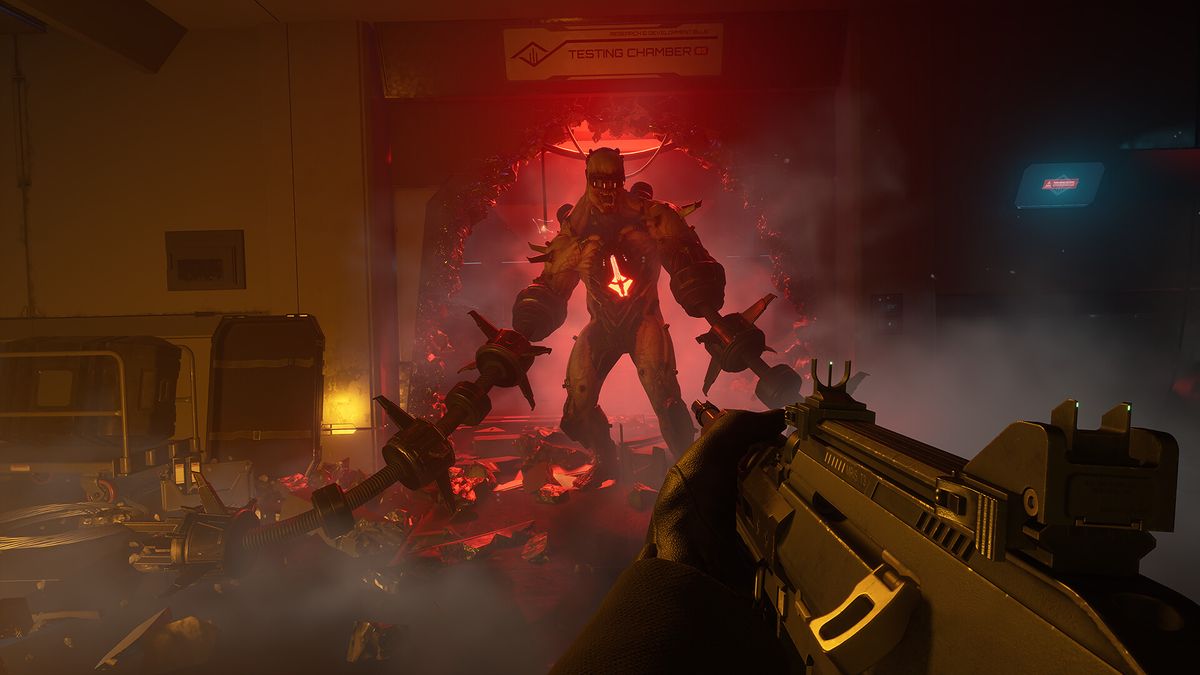
Killing Floor 3 is early in development. So much so that, when I sat down with the development team at Tripwire Interactive behind-closed-doors, there were only a few seconds of pre-alpha gameplay to share. Shining Unreal Engine 5 environments awash in gore and viscera, flickering fires burning through shadows of an under-siege facility. And there were the bodies, hordes of mutated monstrosities rushing against a tidal wave of thundering gunfire. Oh, and the blood, how could I forget about the buckets of crimson red blood. Early days then, but the elements are in place for one hell of a sequel.
Killing Floor has always occupied this strange little space in the pantheon of the best online games. Killing Floor 2 launched back in 2016 and has been quietly supported and succeeding ever since. A little repetitive, sure, but then there's few better ways to burn away hours with friends. Who among us doesn't delight in the opportunity to barrel through wave after wave of rotting flesh sacks? Because you can say what you will about the Killing Floor series, but it's always provided a simpler, more visceral outlay than the likes of Borderlands, Back 4 Blood, or Payday. And that's to be appreciated.
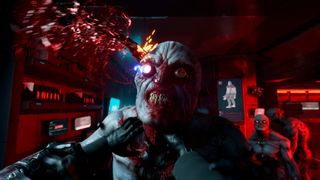
Where then is Tripwire focusing its attention for Killing Floor 3? It's funny, the Killing Floor games have been criticized in some circles for just being a conveyor belt for enemy encounters, and that's literally true here. The year is 2091 and the Horzine megacorp is creating an army of bioengineered monsters, and it's up to you (and five other friends) to secure the future of humanity as hordes of infernal creations are cycled off of a production line and into your crisscrossing lines-of-fire. Although you are going to have to work a little harder to reduce the Zed population in your co-op sessions this time around.
Killing Floor 3 is positioning itself as a better-looking and better-sounding sequel, naturally, but Tripwire appears to be pushing much of its creative energies into making the carnage more varied and bombastic. "Killing Floor 2 was built on Unreal Engine 3 and Killing Floor 3 is UE5, so yes, there's a significant jump there in terms of visual improvements," says Bryan Wynia, studio creative director at Tripwire. "But we want to make gameplay improvements as well, and that's what we've been thinking about first and foremost."
Bonded by Blood
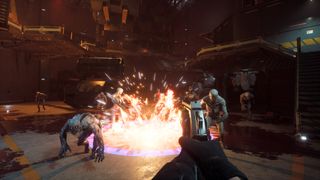
What I almost missed in the mass of bodies rushing the screen is an increased focus on verticality. I mean that both in the sense that the environments are denser, necessitating a wider degree of motion to survive, and that enemies are able to more fluidly traverse the world – the Husk has a more dynamic range of movement, while the Crawler can finally crawl around different surfaces. These may sound like small upgrades, but in an experience inherently built around repetition it's these differentials that can layer atop one another to make the biggest of differences.
Every one of the returning enemy variants are arriving with their own flourishes. For Tripwire it's less about rewriting the playbook and more a case of introducing more dynamics to the well-worn cycle. Survive an attack wave, collect dosh, unlock skills, improve your arsenal, and dive back in for another go on the blood-soaked, Zed-infested merry-go-round. Steps are being taken to make encounters more dynamic too, with larger enemies only crumbling once their battery packs or fuel cells are exposed, with players collaborating to concentrate fire on the weak points to deliver maximum damage.
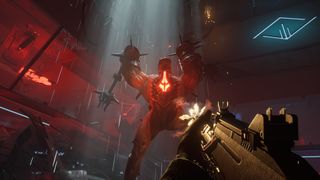

12DOVE visited Gamescom to play the most anticipated new games of 2023 and beyond. For our hands-on previews and exclusive interviews, visit the Gamescom 2023 coverage hub for all of our access and reporting.
Basically Killing Floor 3 looks like more of a good thing, from a team that is working to amplify the strongest elements of the core wave-based shooter model that the series has deployed for almost 15 years. And if you don't care about any of the improvements and variance coming, then you can just treat Killing Floor 3 as an opportunity to get knee deep in gore – Tripwire is just fine with that too. "We look at the environments as a canvas that can be painted with blood and guts. But the real fundamental element with gore is that we treat it as a celebration," says Wynia.
Sign up to the 12DOVE Newsletter
Weekly digests, tales from the communities you love, and more
"We treat it as a reward for players who are taking care of the challenges and the enemies who are overwhelming them. And the other thing with gore is that people play the Killing Floor games for thousands of hours; they've killed these enemies thousands of times and played these maps thousands of times. There's a balance to be struck between making it rewarding each time and also ensuring that people aren't turned off by it." So perhaps that's the biggest challenge for Tripwire. I put it back to Wynia this way, and he was kind enough to humor me: it's like the difference between directors John Carpenter and Ruggero Deodato, because while I can find comfort in the body horror of The Thing pretty regularly, I may only want to roll out Cannibal Holocaust for special occasions. "See," Wynia laughs, "you get it, man!"
Killing Floor 3 will launch on PC, PS5, and Xbox Series X but it remains without a release date. While you wait, why not check out some of the best FPS games.

Josh West is the Editor-in-Chief of 12DOVE. He has over 15 years experience in online and print journalism, and holds a BA (Hons) in Journalism and Feature Writing. Prior to starting his current position, Josh has served as GR+'s Features Editor and Deputy Editor of games™ magazine, and has freelanced for numerous publications including 3D Artist, Edge magazine, iCreate, Metal Hammer, Play, Retro Gamer, and SFX. Additionally, he has appeared on the BBC and ITV to provide expert comment, written for Scholastic books, edited a book for Hachette, and worked as the Assistant Producer of the Future Games Show. In his spare time, Josh likes to play bass guitar and video games. Years ago, he was in a few movies and TV shows that you've definitely seen but will never be able to spot him in.

Ubisoft reaches deal with Tencent to create $4.3 billion mini-Ubisoft subsidiary to "spearhead development" on new Assassin's Creed, Far Cry, and Rainbow Six games
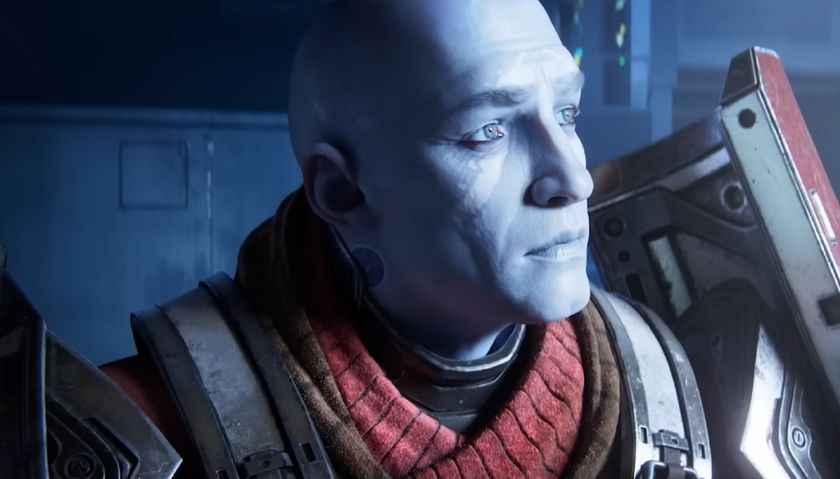
When Destiny 2 "weekly active users dropped lower and faster than we'd seen since 2018," Bungie assembled an A-Team to put out some fires: "We needed to do something"










